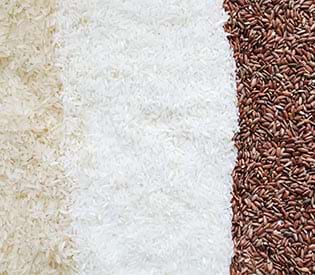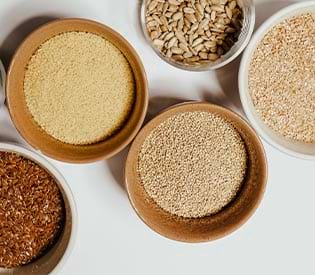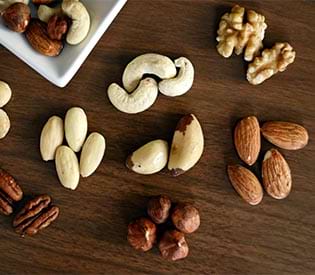🎁 Your Cart Hits $99 = Free Delivery!
🎁 Your Cart Hits $99 = Free Delivery!
Spices and Herbs store
Online Spice Store: Alive Herbals. Which is the cheapest place to buy spices online. Buy fresh spice at an affordable price from a spice store in New York.
Natural Herb Store: Alive Herbals is the best online herbal store in the USA. Buy the best dried herbs wholesale or at a discount from this herb company.
Online Spice Store: Alive Herbals. Which is the cheapest place to buy spices online. Buy fresh spice at an affordable price from a spice store in New York.
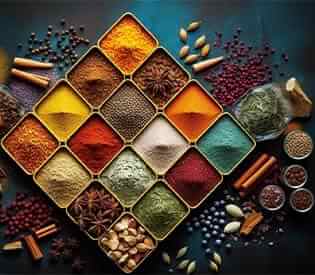
Online Spice Store
Natural Herb Store: Alive Herbals is the best online herbal store in the USA. Buy the best dried herbs wholesale or at a discount from this herb company.
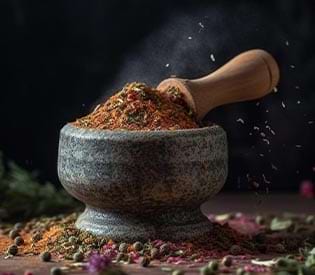
Natural Herb Store
Rice Beans Grains Store
dried fruits and nuts
Add description, images, menus and links to your mega menu
A column with no settings can be used as a spacer
Link to your collections, sales and even external links
Add up to five columns
Add description, images, menus and links to your mega menu
A column with no settings can be used as a spacer
Link to your collections, sales and even external links
Add up to five columns
Products
Add description, images, menus and links to your mega menu
A column with no settings can be used as a spacer
Link to your collections, sales and even external links
Add up to five columns
Add description, images, menus and links to your mega menu
A column with no settings can be used as a spacer
Link to your collections, sales and even external links
Add up to five columns
What are dried savoy leaves?
Savory is a tiny green herb used to flavor meals that is a member of the mint family. Similar to savory, herbs are the green portions of plants that are used to season meals in several ways. The herb is a small plant characterized by blooming flowers and green leaves. Although native to the Mediterranean, this plant may also be found in other places, including Great Britain. Various civilizations have utilized it to enhance the taste of their cuisine. Savory comes in two varieties: summer savory and winter savory. The tastes of thyme, marjoram, and mint are present in both summer and winter savory, despite the latter being used more often. These flavors go well with a wide range of dishes, hot or cold.
How do I use dried savory leaves?
Incorporate a small quantity of dehydrated savory leaves or a light dusting of savory powder into the mixture as it cooks. As the flavors combine, the delectable flavor of the herb will permeate your dish.
Dried savory leaves have benefits?
Generations have utilized summer savory as a culinary herb and a traditional remedy for numerous health conditions. More recent research indicates that the plant is useful in reducing microbial infections, reducing inflammation, and shielding the body from oxidative stress and free radical damage. The following is a summary of the main advantages of summer savory:
◉ Provides Beneficial Compounds: Various bioactive substances, including tannins, phenolic compounds, and flavonoids, make up summer savory. It also provides terpenes, which give the plant its distinct flavor, aroma, and medicinal properties. Additionally, the plant contains rosmarinic acid, which has been shown to have immunostimulating, anti-inflammatory, and antioxidant properties.
◉ Eases Digestive Complaints: In traditional medicine, savory summer is believed to soothe digestive issues, including upset stomachs and bloating. It has shown efficacy as a natural anti-inflammatory that reduces discomfort.
◉ Soothes Sore Throat: Due to its calming qualities, summer savory has been used to treat respiratory issues and sore throats in tea and extract form. It may aid in the battle against respiratory system diseases due to its antibacterial qualities.
◉ Good for a Low-Sodium Diet: It is believed that the Romans used summer savory in place of salt in their cooking. It smells strong and tastes deliciously savory, with a hint of acidic, spicy, and salty aromas. The plant contributes a savory taste to food without raising sodium or salt consumption. You can add it to a variety of meals that frequently require salt, making it an excellent tool for low-sodium diets.
Where can I buy dried savory leaves?
Buy dried savory leaves from the health food store in the USA, Alive Herbals.
Dried Savory Leaves information (at a glance):
| Product Name | Dried Savory Leaves. |
| Scientific Name | Savory (Satureja L.). |
| Country of Origin | It is native to Albania. |
| Product Style | Leaves. |
| Taste and Aroma | Its scent and taste are mild and herbaceous, with a peppery bite. |
| Shelf Life and Storage | Shelf life is about 6–36 months. Store it in an airtight container in a cool, dry place and prevent sunlight exposure. |
| Precautions | We requested that, before consuming spices, herbs, teas or any kind of natural product, you consult an expertly qualified healthcare practitioner or herbalist. |
| Note | This product information has not been appraised by the Food and Drug Administration (FDA). This information is solely intended for educational purposes. |

